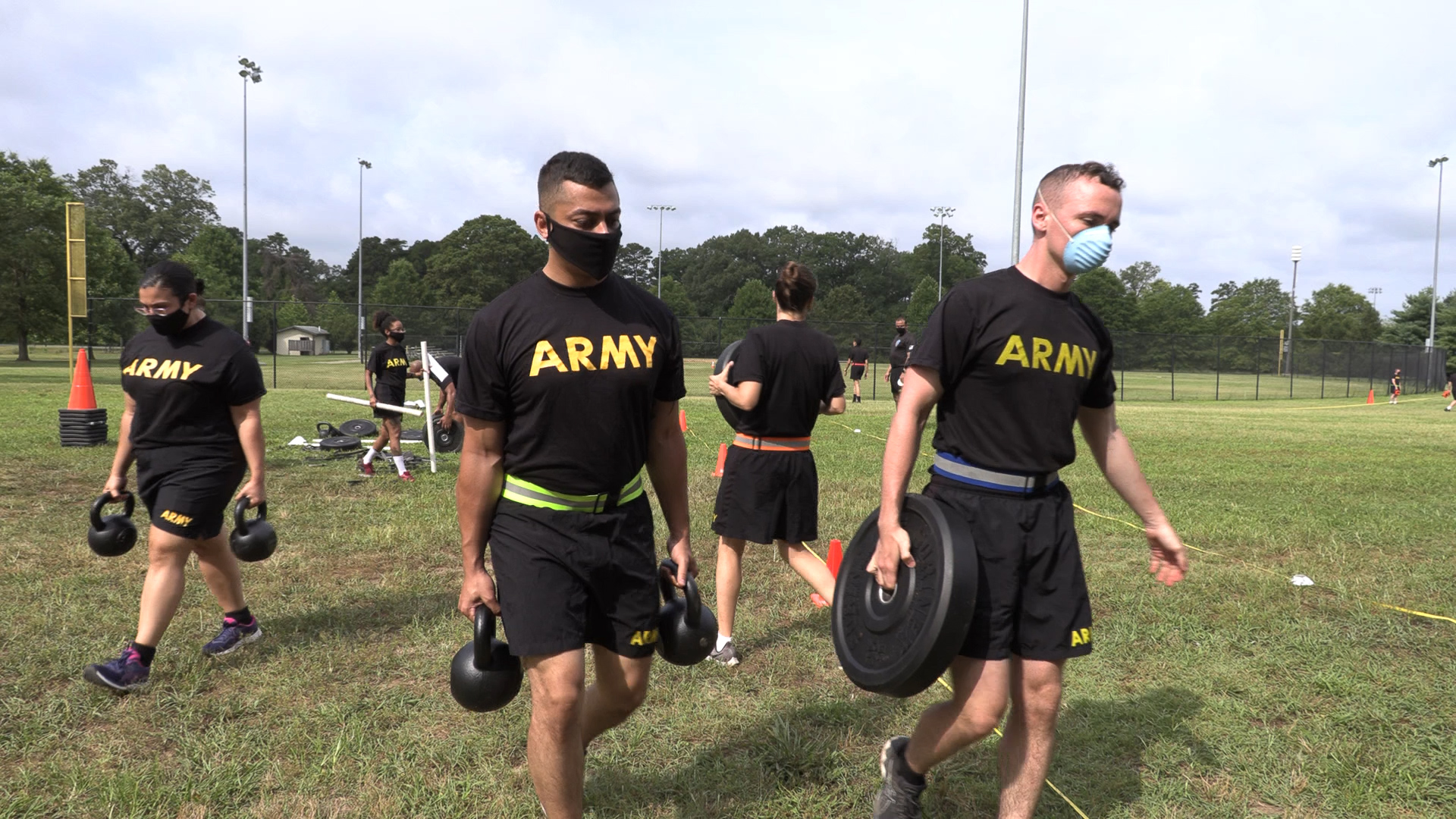
By Bryan Spann, Fort Meade Public Affairs
ACFT Training Team visits Fort Meade
A military training team (MTT) from Fort Eustis, Va., used a week-long stay at Fort Meade to train unit NCO's and officers on the new Army Combat Fitness Test (ACFT).
The Army completed the distribution and fielding of equipment needed for the new test in June. But because of Covid-19, training on the new test was suspended.
“We actually came to kind of a halt there for the last three to four months,” said Sgt. First Class Joseph Brown, NCO in charge of the training team. “In the last couple of weeks we've kind of picked back up and now we're getting back out to units to conduct the training.
“For the last year and half, almost two years, we've been traveling. We were just at Fort Belvoir, in a couple of weeks we'll be at APG (Aberdeen Proving Grounds), also going out to California, Montana. We've also gone out to Germany – so we're kinda making the rounds.”
The training team's goals are the same at Fort Meade as they are at every installation. Team officer-in-charge, Lt. Col. Joseph Flores said, “We want them to train to the standard and because this is a new test, a lot of soldiers aren't familiar with the events.”
The new ACFT features six events – a three-repetition dead lift, standing power throw, hand release push-ups, a sprint-drag-carry event, leg tuck and a two-mile run.
“We want to know that they can execute them themselves and they can teach their units,” said Flores. “This is a train-the-trainer course. Our teams are going to be gone after next year, so we expect this to proliferate. We train them, they go back and train their units and those soldiers can then train others in their unit or even other units if they want to collaborate on the training. Our focus is to make sure they know the standards and are training to the standards.”
All installations receive four days of training. “They receive training on the ACFT, specifically the exercises and the standards. We also go through scoring, lane set up, NCOIC and OIC responsibilities...how to set up the field and what that entails. It just gives a good feeling of (you know) what to expect and what to do when they go back to their units,” says SFC Brown.
The training team welcomed a special visitor mid-way through the training at Fort Meadew – Col. David Feltwell, the command physical therapist for the Center for Initial Military Training, U.S. Army Training and Doctrine Command. Feltwell is part of the Army team that will be looking at all the data from the first year of using the new test.
“This has been a 10-year process,” said Feltwell. “The research, the basic science has been done. What we're doing now is collecting data, not just on 63 units but on the whole Army. So we go from several tens of thousands of potential data points to a couple of million. That's the big thing. So, collecting data on the whole force across a year is going to confirm that we've got everything right in terms of the grading.”
In Feltwell's view, the new test is a lot more fun as well as competitive. “You're being challenged in ways you haven't before, you get to play with equipment, you get to compete in a way, across all the fitness components. So, if you're particularly good at one thing, you're going to have a chance to demonstrate that in this test. If you're not so strong in something and someone else is, they'll obviously be able to compete against you. So there is a sense of it being more of a complete and competitive test. You're out on the field doing things you haven’t been tested on before – movements, carrying, pulling, pushing – all of things you have to do in combat has been reverse engineered into this test.”
The biggest challenge for the training team? According to Brown, one challenge is the weather, but it's not the only one.
“We're trying to keep people hydrated...the unit here has been great with supporting the fielding of all the equipment we need,” said Brown. “Everyone is still kind of wondering if this is really happening, but we do know that it's going to take effect Oct. 1 of this year.
“It's getting people to buy in, it's a change in culture, that's the challenge right now.”





